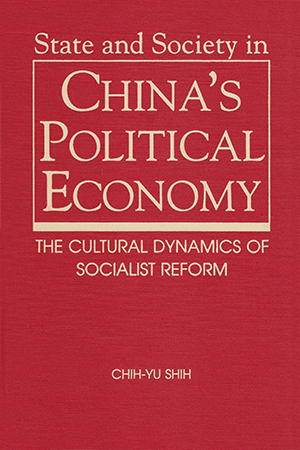
- 1995/207 pages
State and Society in China's Political Economy:
The Cultural Dynamics of Socialist Reform
Chih-yu Shih looks at this precarious dyad, demonstrating what reform has done to the country's political and economic mechanisms and, equally significant, how the coexistence of collectivism and individualism continues to dominate the thinking of China's reformers. Considering the issue from cultural, moral, political, and ideological perspectives, Shih deconstructs the popular question of whether Chinese socialism has died.
In the second part of the book, the results of Shih's insightful private interviews with planners, general managers, party cadres, and ordinary workers reveal the delicate and complex interrelationships among them. Also of special value is the author's comprehensive bibliography of Chinese-language sources on economic reform.





